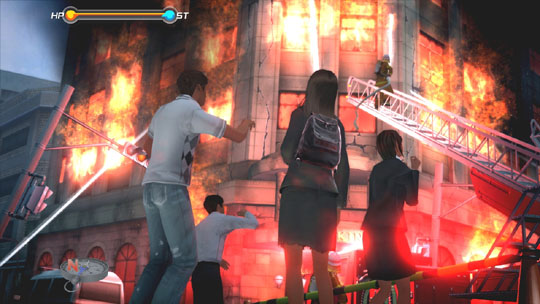Japan is still reeling. The devastating earthquake and tsunami of March 11 left thousands dead and many more homeless or unaccounted for. Prime Minister Naoto Kan called the quake the worst crisis Japan has faced since the end of World War II. The earthquake's very real impact has been felt everywhere in Japan — even in the virtual world of video games.
The recent rolling blackouts in Tokyo have slowed development on some titles, grinding others to a temporary halt. The days and weeks after March 11 resulted in many studios either closing temporarily or having employees work from home due to aftershock fears. There is now concern that the huge Tokyo Game Show, held in September, could be in jeopardy due to the amount of electricity required to air-condition Chiba's Makuhari Messe convention center and power the endless rows of TVs and game consoles. Word has it that TGS organizers are currently not thinking of canceling or downsizing the show, but note that this could change due to future developments.
The impact, however, has already been felt. In the days following the earthquake, game after game was delayed or canceled. The subject matter of some delayed games no longer seemed appropriate for release at that time. For example, delayed racing game "MotorStorm: Apocalypse" and zombie title "Yakuza: Of The End" are both set among crumbling urban settings, which naturally evoke the destruction in northeast Japan. Nintendo's "Steel Diver" and Namco's new "One Piece" game were also delayed, and while they don't depict apocalyptic cities, they do take place at sea. Their delay seems to be a result of the earthquake's ensuing tsunami. These games were not some concerted effort to cash in on tragedy. They have been in development for years, and their release window ultimately ended up as bad timing.



